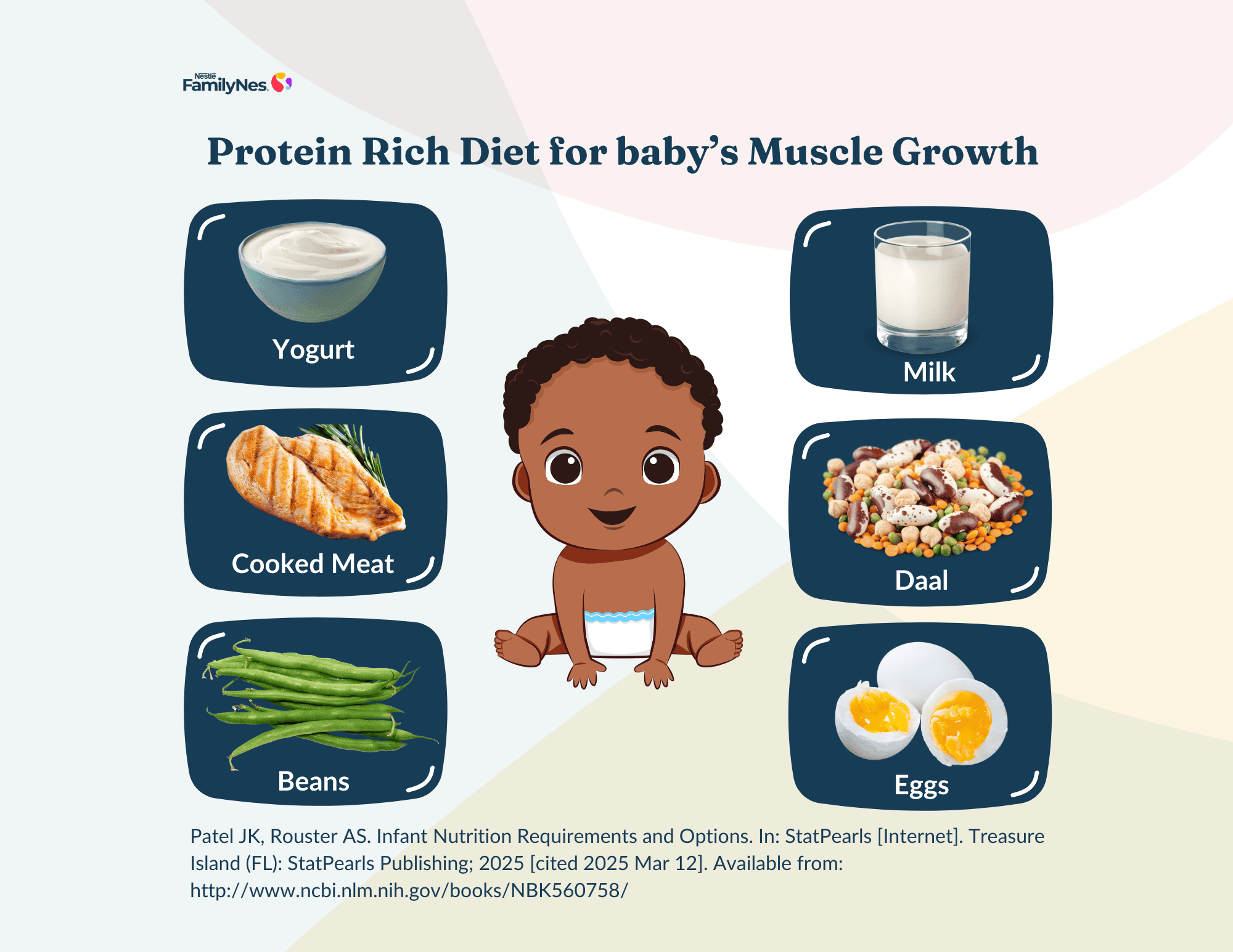
Fueling Growth: The Role of Nutrition in Children’s Muscle Development
Childhood is an important period for laying a solid foundation for the future. Children undergo rapid physical, mental, and emotional development at this stage. Optimal nutrition, exercise, and environment provide the basis for muscle development and overall health, contributing to everyday life and overall health.(1)
Understanding Muscle Development in Children
As your baby grows and develops, their muscles strengthen to keep pace with their increasing physical activities. Muscle development is also important for mediating balance, coordination, and overall physical function. Muscle growth occurs from repeated participation in several physical activities, but nutrition is an aid and contributes to this muscle growth through a process of cellular repair and replenishment.(2)
Impact of Lacking Necessary Nutrition
The muscle growth and overall development of a child can be affected when they do not receive the necessary nutrition. Inadequate intake of essential nutrients can lead to:
- Potentially weaker muscles
- Reduction in bone strength
- Increased fatigue
This further affects muscle function and overall health. To avoid these risks, it is crucial to maintain the intake of key essential nutrients involved in muscle development.
Is Protein One of the Key Nutrients for Muscle Growth?
Yes, children need protein to grow and be strong! It is vital for their muscle development. Interestingly, protein helps repair and build muscles that are used every day. (3) Protein helps in muscle cell growth and muscle mass.
Sources: High-quality proteins such as Whey protein are beneficial for muscle growth & development. Whey protein is beneficial as it is the source of all amino acids; it is rapidly utilized as compared to other forms of protein like casein or soy. Eggs, milk, meat, and plant foods such as beans and daal are sources of protein.

Fortified Milk and Foods: Supporting Muscle Development and Overall Health
Adding fortified milk and foods to the regular diet is a good option as it increases nutrient intake, like protein, which is necessary to support muscle growth and development. Additionally, fortified milk contains vitamin D, which helps support calcium absorption in the body to support bone development that would, in turn, support movement in toddlers.
Talk to your pediatrician to know more about fortified milk and foods that support overall nutrition. Also, feel free to share your opinions or questions. We would love to hear from you!
References
- Davis TA, Fiorotto ML. Regulation of muscle growth in neonates. Curr Opin Clin Nutr Metab Care. 2009 Jan;12(1):78–85.
- Adegoke OAJ, Huang Y, Fu X, Mora S. Editorial: Nutrition in the Regulation of Muscle Development and Repair. Front Physiol [Internet]. 2022 Feb 24 [cited 2025 Mar 12];13. Available from: https://www.frontiersin.org/journals/physiology/articles/10.3389/fphys.2022.853007/full
- Patel JK, Rouster AS. Infant Nutrition Requirements and Options. In: StatPearls [Internet]. Treasure Island (FL): StatPearls Publishing; 2025 [cited 2025 Mar 12].
- Available from: http://www.ncbi.nlm.nih.gov/books/NBK560758/
- Durda-Masny M, Ciomborowska-Basheer J, Makałowska I, Szwed A. The Mediating Role of the Gut Microbiota in the Physical Growth of Children. Life (Basel). 2022 Jan 20;12(2):152.

